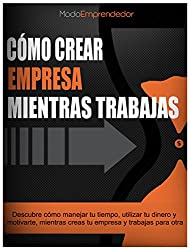
In this article you will know the 5 Lessons I Learned Starting a Business that you will never learn in college.
When we want to start a business, we tend to get caught up in the idea that we need more traditional education; instead of pulling the trigger and working for our dreams.
As a result, the most common decision is to pursue a master’s or perhaps a phd.
Also read: Is it worth it to invest money in a master’s degree?
Sadly, multiple studies have shown that there is very little relationship between business success, college degrees, and people without them.
Also read: Why bad students end up being successful entrepreneurs.
Success is made of a completely different mix of ingredients than we think. It is made of items not found in a classroom.
Therefore, I want to share a list of the 5 things that I learned when creating a company that the university will never teach you:
What I learned creating a company that you will never learn in college.

1. First and foremost, time is of the essence.
Time is not an unlimited commodity. In fact, now being 20 is like being 30. You’ve got time in your 20s but you can’t waste it.
I have seen many recent graduates come out of college with a diploma and heavy debt to face the existential responsibilities of this stage of life.
It is important to ask yourself these questions:
- Where do I want to be in two years?
- I want to marry?
- Have children?
- Do I want to have my own company or work for someone else?
Yes, it’s scary, most people never ask these questions; because their mind is tied to a curriculum for as long as they can remember.
Remember, the day you finish university is the first day you will live without a map.
That is why it is important that if you decide to create a company, you make the most of your time. I suggest you start by defining a business model. If you want to learn how to do it, click here.
2. True success never comes fast.
This is another of the great lessons I learned when creating a company and they never told me at university.
People read the stories of Facebook, Google, Youtube, LinkedIn, Amazon and many other companies; making them think that success comes quickly.
Those are very rare cases. In fact, Amazon and LinkedIn took many years to see their first gains.
It can take you 10 years to find overnight success. Click To Tweet
In today’s world, particularly us millennials, we have been trained to love and expect immediate gratification and we don’t understand what delayed gratification is.
Additionally, technology gives us everything we want when we want it. However, starting a company is not the same.
If you want to create a company that has meaning, be prepared, because the process will be long.
This does not mean that your business will not be successful or that it will never make money; it just means that you have to have a certain level of patience and a lot of resilience to achieve what you want.
3. A million dollars is a lot of money.
On many occasions, entrepreneurs aim for the stars to land on the moon. They want to become the next Airbnb, Square, or Uber.
After I made my first million dollars, I realized that it was not necessary to become the next Mark Zuckerberg.
On the contrary, be happy to create an excellent company that generates 3 million a year and gives you a salary of 400,000 dollars to enjoy life.
Everything changed for me when I transformed the thought of creating a million dollars and focused on helping a million people. If you focus on this you will always have enough money.
This was a great lesson I learned when starting a business.
Stop thinking about creating 1 million dollars, focus on helping 1 million people. Click To Tweet
4. You need to be prepared to make some changes.
When we started my previous company, we had a vision of what we wanted to achieve with the organization. So we created an initial strategy based on e-commerce.
Unfortunately, this strategy coincided with a downturn in the market; resulting in a decrease in sales of $3 million in 90 days. My wife and I did not let this kill the business.
Quickly, we decided to change our strategy, focusing on the customers who wanted our product the most.
This led us to handle the production and management of some of the largest charities in the world. Currently between 20% and 25% of our business is concentrated in that area.
Also read: How to sell 12 million dollars in a very competitive market.
5. Think big even if you are small.
When we started Sevenly, we thought very early on about ways to scale quickly. We try to get international recognition, rather than create a solid footprint in the market.
What we didn’t know is that it’s okay to start small and grow once you’re ready.
The goal of your business in the early stages is to generate enough cash flow to support growth.
For self-funded businesses, or those where the founders are the source of capital, generating cash flow is crucial to the longevity of the business.
Growing your company in a short time will require you to invest money and resources that you may not have; causing you to lose control, or partnering with people you wouldn’t have done business with if it wasn’t necessary, or end up empowering people who can impact your business strategy and vision.
Don’t forget to move at your own pace.
Conclusion.
I wish I had known all these lessons that I learned when creating a company, from before starting them.
These tips aren’t necessarily the most glamorous, but they are essential in determining whether or not you have the appetite it takes to ensure the success of your business.
There are no guarantees, but if you are reading this article you will have tools to reflect and plan what you would do in the worst scenarios.
And remember, if you are really interested in creating your own business, you can read our book “How to create a company while working: Discover how to manage your time, manage your money and motivate yourself while creating a company and working for another” , where you will find all the information you need to found your own company, without having to leave your job.


This article was originally published on startupcamp.com. Its translation and publication in ModoEmprendedor has been authorized directly by the author and cannot be reproduced by any other means.

